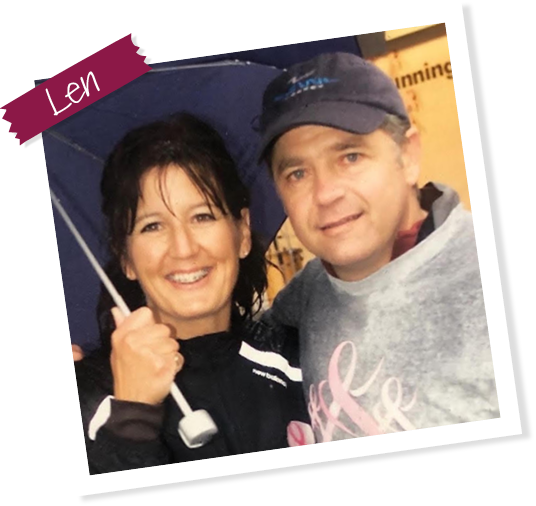Len Webber, MP Calgary Confederation, caring for his wife
 My wife, Heather, was diagnosed with stage 4 breast cancer at 37 years old. She fought the disease for 10 years before her passing in 2010. I would like to preface my caregiving experience with the fact that the last 6 months was a fog for me, as I was in complete disbelief.
My wife, Heather, was diagnosed with stage 4 breast cancer at 37 years old. She fought the disease for 10 years before her passing in 2010. I would like to preface my caregiving experience with the fact that the last 6 months was a fog for me, as I was in complete disbelief.
I was a member of the Alberta Legislature when Heather became sick for the final time, and I had just been appointed to Cabinet. The position of International Relations required significant travel and it got to the point where I just had to be home. The Premier was gracious enough to shuffle me into another portfolio that kept me in Alberta. We had three young daughters and for as long as they can remember their mother was often sick. We really thought that she was going to beat this cancer; she was a fighter, a survivor, but when the cancer spread and palliative care was imminent, my own fog set in, the disbelief, the memory loss after the fact – I don’t even remember much of the funeral.
During the final year, I would cook and clean, inject Heather’s pain medication and administer the correct pill regiment. She was in a lot of pain. The most wonderful caregiver, RN Donna Dyer, was assigned and would come to our home three times a week to help. She would assess the needs and ensure that Heather was comfortable. Donna was a godsend and always a phone call away. She would reassure my wife, explain next steps, and help with pain management – she was a guardian Angel. I was a bit of a wreck during that time, as I lacked any significant sleep and the emotion was intense, but we all did what was necessary. Heather died 2.5 days after we drove her to the Agape Hospice. The girls and I knew that drive would be her last. I literally broke down and cried when we arrived.
Days after Heather’s death, still in grief, I was skeptical on how I would manage my most recent appointment as Minister of Indigenous Relations. It turned out to be one of the most wonderful experiences in my life, as the Indigenous community healed me in many ways. On their traditional territory, the First Nations were kind enough to arrange a traditional powwow ceremonial event with a large bonfire and what seemed to be thousands of people present. There were Indigenous singers, dancers in cultural regalia and drummers drumming, all the while lifting Heather’s spirit into the heavens and to the creator. It was an incredibly emotional time for me. It changed me as a politician. It instilled a passion to advocate and do what I can for their community.
I have also taken on an advocacy role for organ & tissue donation because of my wife. She was a regular blood donor before her diagnosis and became upset that she was unable to donate her organs upon her death. I promised her I would advocate and started the organ donation registry in Alberta and currently have an organ donation Private Member’s Bill in the House of Commons.
Thinking back to those days, I wish we knew where our caregiver Donna is today. My family is eternally grateful to her and would thank her again. Heather was at peace when she was at our home. I don’t know if home care workers, like Donna, really know how impactful they are to their patients and families, and how much the care they provide is appreciated.
